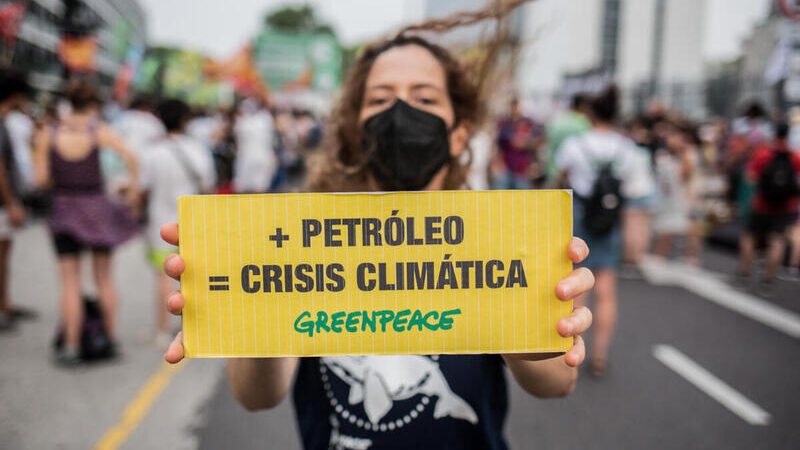There is no nice way to say this: fossil fuels are killing us and our leaders are permitting it to happen.
Across the world and all over our social media feeds, boiling temperatures, devastating wildfires, worsening droughts and violent floods are reported on a near daily basis. These are not just statistics – these are lives, loves and livelihoods being lost and shattered. From Hawaii to Greece, Libya to China and beyond, the impacts of climate change are being felt on every continent.
Despite this, political leaders are doing little to transform the fossil fuel industry that is dedicated to keeping the world dependent on a failed energy system. With over US$200 billion in profits for the “big five” oil and gas companies in 2022, it is clear that the driver of the fossil fuel industry is profit at any human cost.
The science tells us we are in the throes of a planetary emergency, yet our politicians continue to kick action into the long grass. The costs in both lives and finances will only grow the longer action is postponed. Imagine how much easier it would have been if governments and corporations had started to act when IPCC warnings were first sounding the alarm.
G20 foot-dragging
The G20 Summit just wrapped where leaders failed to reach agreement on the phase out of all fossil fuels, and only managed a coy commitment to triple renewables through “existing targets and policies,” taking note of the need to mobilise $4 trillion a year by 2030 for clean energy in low-income countries.
This foot-dragging cannot continue: the opportunity to step up is at the UN Secretary-General’s Climate Ambition Summit during next week’s UN General Assembly and at Cop28 climate talks in UAE.
Facing this climate breakdown, corporate greed and government timidity, it is vital we recall our own agency. It is precisely at this moment that the power of collective action is most needed. To avoid the most catastrophic impacts of climate change we must come together and choose action over inaction, justice over greed, agency over hopelessness.
That’s why masses of people will be taking part in over 650 marches and events as part of the Global Fight to End Fossil Fuels on September 15 and 17. This will be one of the largest global climate mobilisations since the Covid-19 pandemic and certainly the largest one to demand the end of fossil fuels.
Make polluters pay
The fossil fuel industry is delaying its transition to a greener, safer energy system and must be held accountable for the loss and damage they have caused to humans and biodiversity. It’s time to stop all new coal, gas and oil projects and phase out these dirty fuels forever. It’s time for the fossil fuel industry to stop drilling, and start paying. Polluters should pay for the destruction they have caused, while governments, legislators, and courts must act in the interests of the people and hold the fossil fuel industry accountable for their crimes, and criminalise fossil fuel extraction.
Yet we know justice won’t simply fall into our laps. Politicians often become leaders only once they’ve exhausted all other options and when the pressure becomes too big to ignore. This is why Greenpeace is calling on its members, supporters and allies to claim the public square and make our collective demands heard.
While the present is bleak, we are in charge of our future. We won’t rest until our leaders meet our climate demands for they are accountable to us, the people.
Mads Flarup Christensen is the international executive director of Greenpeace International
